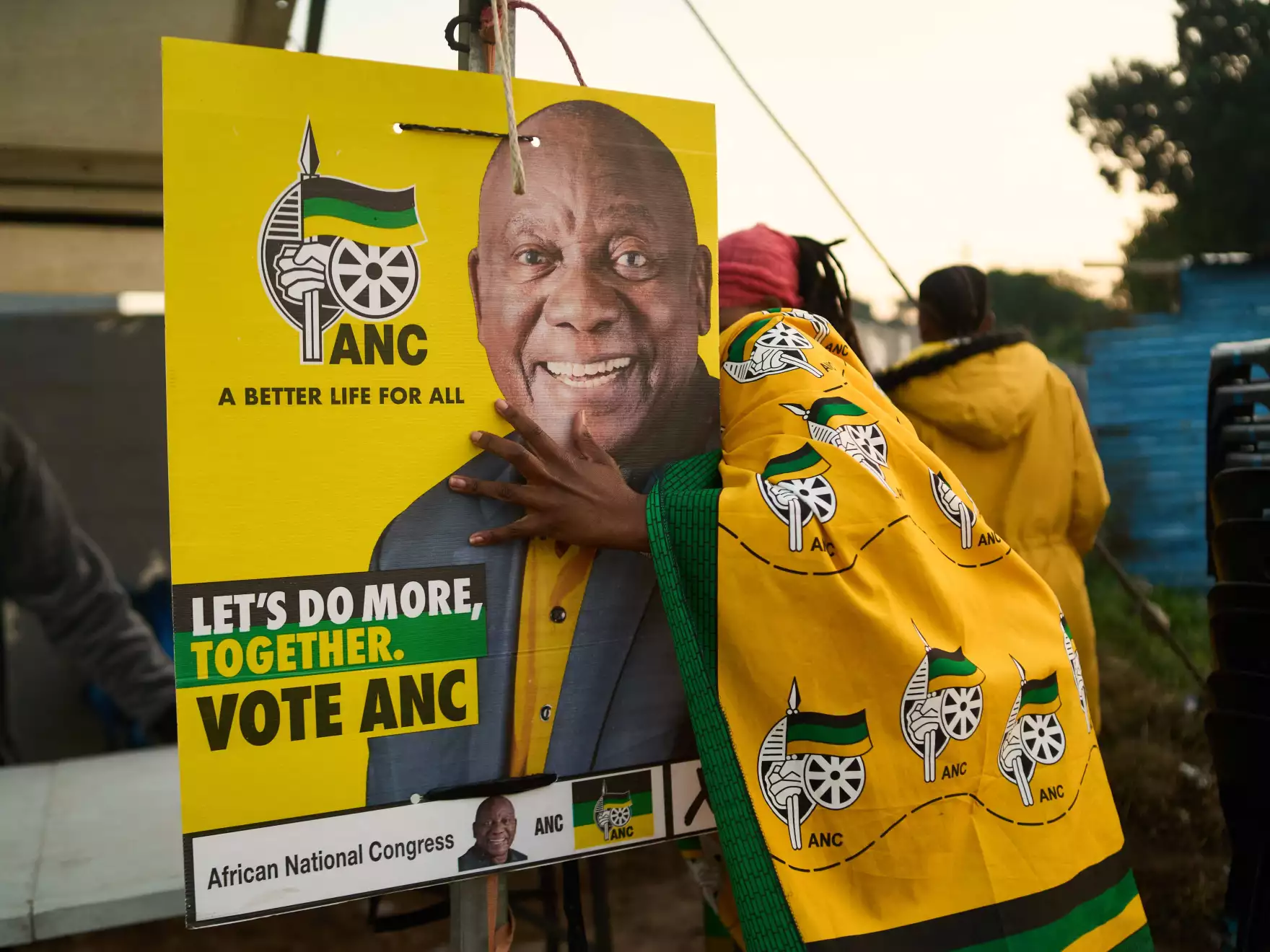The African National Congress (ANC), reeling from a historic electoral defeat, has lost its iron grip on the South African Parliament for the first time in three decades. With a mere 40% of the votes in the fiercely contested legislative elections on May 29th, the ANC is now scrambling to form a coalition government, a task fraught with complexities and uncertainties.
Struggling to find solid ground, the ANC is caught in a quagmire of political quandaries. The party must navigate the treacherous waters of coalition-building, torn between aligning with the right-wing Democratic Alliance (DA), which champions corporate interests, or the leftist populist factions such as “uMkhonto weSizwe” (MK) and the Economic Freedom Fighters (EFF).
Despite holding 159 seats in the National Assembly out of 400, the ANC is grappling with internal strife as it mulls over the paths that will shape the nation’s trajectory for the next half-decade. Secretary-General Fikile Mbalula’s assertions of commitment to a stable government ring hollow against the backdrop of mounting challenges.
While ideologically inclined towards the MK and the EFF, whose platforms advocate for expansive public spending and radical economic policies such as mine nationalization, the ANC faces stark warnings of economic turmoil from experts like economist Dawie Roodt. Roodt underscores the imperative of a market-friendly coalition, warning that alternative scenarios could spell disaster for financial markets already teetering on the brink.
Anne Frühauf, CEO of the risk consulting group “Teneo,” reinforces these grim prospects, highlighting the pervasive uncertainty clouding business prospects. With the ANC’s internal dynamics shaping the choice of alliances, the country’s future hangs in the balance, swayed by political maneuvering.
Despite the ANC’s luminaries, including former presidents Thabo Mbeki and Kgalema Motlanthe, leaning towards a DA coalition to assuage market concerns, negotiations remain fraught with challenges. DA President John Steenhuisen’s uncompromising stance underscores the arduous path ahead, with fundamental principles such as the rule of law and corruption-free governance deemed non-negotiable.
South Africa stands at a precipice in its history, with the formation of a coalition government emerging as a Herculean task. The specter of failure looms large, threatening to deepen the country’s protracted economic woes, a grim reality that casts a long shadow over its future.
